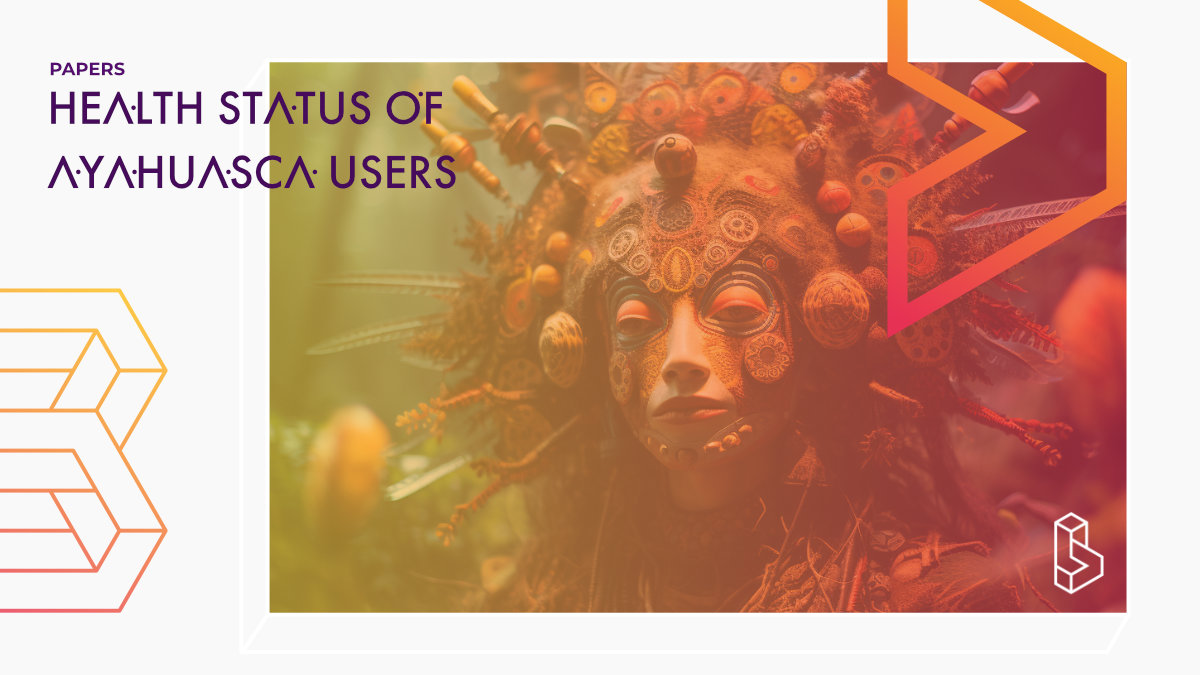This meta-analysis (2012) reviewed the health status of ayahuasca users reported across ten independent studies using quantitative and qualitative analyses. Ayahuasca subjects had similar or better scores than controls and the general population on measures of psychiatric morbidity, psychosocial status, well-being, consistently fewer alcohol-related problems, and various subjective (e.g. religious, existential, emotional) benefits.
Abstract of Health status of ayahuasca users
“Introduction: Ayahuasca is a psychedelic brew originally used for magico‐religious purposes by Amerindian populations of the western Amazon Basin. Throughout the last four decades, the use of ayahuasca spread towards major cities in all regions of Brazil and abroad. This trend has raised concerns that regular use of this N,N‐dimethyltryptamine‐ and harmala‐alkaloid‐containing tea may lead to mental and physical health problems associated typically with drug abuse.
Methods: To further elucidate the mental and physical health of ayahuasca users, we conducted a literature search in the international medical PubMed database. Inclusion criteria were evaluation of any related effect of ayahuasca use that occurred after the resolution of acute effects of the brew. Fifteen publications were related to emotional, cognitive, and physical health of ayahuasca users.
Results: The accumulated data suggest that ayahuasca use is safe and may even be, under certain conditions, beneficial. However, methodological bias of the reviewed studies might have contributed to the preponderance of beneficial effects and to the few adverse effects reported.
Discussion: The data up to now do not appear to allow for definitive conclusions to be drawn on the effects of ayahuasca use on mental and physical health, but some studies point in the direction of beneficial effects. Additional studies are suggested to provide further clarification.“
Authors: Paulo Cesar Ribeiro Barbosa, SuelyMizumoto, Michael P. Bogenschutz & Rick J. Strassman
Summary of Health status of ayahuasca users
Ayahuasca is a decoction of plants containing N,N-dimethyltryptamine (DMT) and b-carboline alkaloids such as harmine, harmaline, and tetrahydroharmine. It is psychoactive when injected or smoked, but metabolized rapidly by monoamine oxidase activity, (MAO-A) in the gastrointestinal tract.
Ayahuasca’s acute effects include stimulation, perceptual, cognitive, affective and kinesthetic alterations, as well as numinousness, personal and religious insights, and peaceful states. Cardiovascular responses are moderate, relatively safe, and milder than those reported for more prototypical sympathomimetic drugs such as amphetamine.
Find this paper
Health status of ayahuasca users
https://doi.org/10.1002/dta.1383
Open Access | Google Scholar | Backup | 🕊
Cite this paper (APA)
Barbosa, P. C. R., Mizumoto, S., Bogenschutz, M. P., & Strassman, R. J. (2012). Health status of ayahuasca users. Drug testing and analysis, 4(7-8), 601-609.
Authors
Authors associated with this publication with profiles on Blossom
Rick StrassmanRick Strassman is an associate professor of psychiatry and best known for his DMT research in the late 1990s and his subsequent book DMT: The Spirit Molecule.

